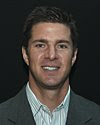I get asked a ton of radio and radio promotion questions on a daily basis as you can imagine being the head of TMG Marketing. I recently sat down with Rick Lee of Rick Lee Promotions and had him answer a few of my FAQ's. Questions and answers are below. The most important aspect of music is to get an unbiases opinion. That means go out and survey people you don't know. That is the only way to get honest feedback.
1. What stations do you concentrate your efforts on for your clients?
I have phone conversations bi-weekly with all R&R (Billboard) Reporters and CRW Reporters. These are the stations that drive the charts and will influence most other stations in what they decide to spin. It is hard to imagine that there are around 150 music programmers that decide what most all of the country will hear on Christian Radio. Getting airplay on non reporting stations might help with booking in those areas but will do nothing to advance your results at radio.
2. What percentage of a chance does a new artist have in receiving a radio spin on a reporting station?
Bottom line is only “great” songs make it to radio. Now there are a number of opinions as to what constitutes a “great” song. One good way to gauge that is simply to ask yourself, or more importantly a non-biased party, is my song as good as the ones you hear on the radio? Understand that most of the songs that make the top 20 have had thousands of dollars put into production. Most of those songs have been written or co-written by writers who consistently have hit songs on the radio. A radio song must be great in lyric, performance and production.
Most stations have a short list of songs in their rotation. They have their top 20 and then a recurrent list that is usually made up of songs that are past top 20. There may be 5 songs in heavy rotation (30 spins) and the medium (20) and light may go down to 10 per week.
Stations are very hesitant to play new artists. Picture yourself driving down the road listening to your favorite station and you hear 5 songs in a row from famous artists that you love and then a song comes on from a person you have never heard of. Unless you are blown away by the first 5 seconds of the song you will be tempted to turn the dial. That thought scares a programmer to death. Radio needs listeners, that is how they either sell commercials or raise funds from listeners. Content is the key and they are trying to appeal to a broad spectrum of likes and dislikes. It is not easy.
3. Why do artists hire radio promoters? What is the average fee a radio promoter will charge for a single, what results should an artist expect?
Music programmers are inundated with requests to play music. A radio promoter is a voice that separates you from the hundreds of other appeals. A radio programmer adds credibility and will increase the chances of your song being heard. A good radio promoter should be able to assure you that your song has been heard by the key decision maker at the radio station. Once the promoter gets it to that point the song must stand on its own merit.
I would venture to say that if there is not a promoter out there working on your behalf your song will not be heard by 90% of the programmers. The only exception to this scenario is that there would be some sort of heightened awareness about the song through publicity, movie theme, great story etc.
A successful Christian AC radio promoter will charge $1500 per month, $6,000 over the life of the song.
4. What is the correct way an artist can promote their single to radio? Should they send physical CD’s?
Sending CD’s to radio stations is a thing of the past. A song will be better received at radio by sending the single through digital delivery services like PLAY MPE. This is an industry standard and is user friendly for programmers. Additionally using digital distribution will add credibility to the song and the artist as well as separating from the sea of songs they are going through.
I would say the best way to get a “NO” from any significant radio station would be to take a CD to the station and/or call the station yourself. Another no-no is to get a mass number of people to call the station and try to convince them to spin your song. Once a song is getting spins then that is appropriate for people to call and say “I like that song…..”
5. Is it common place to see a label and a radio promoter to be one in the same?
It is expected that record labels like the music on their label. It is quite another thing for a promoter to believe and push the song along with other valid artists. Independent artists usually hire outside promoters.
Subscribe to:
Post Comments (Atom)

No comments:
Post a Comment